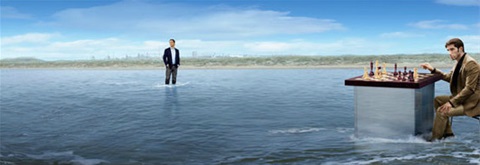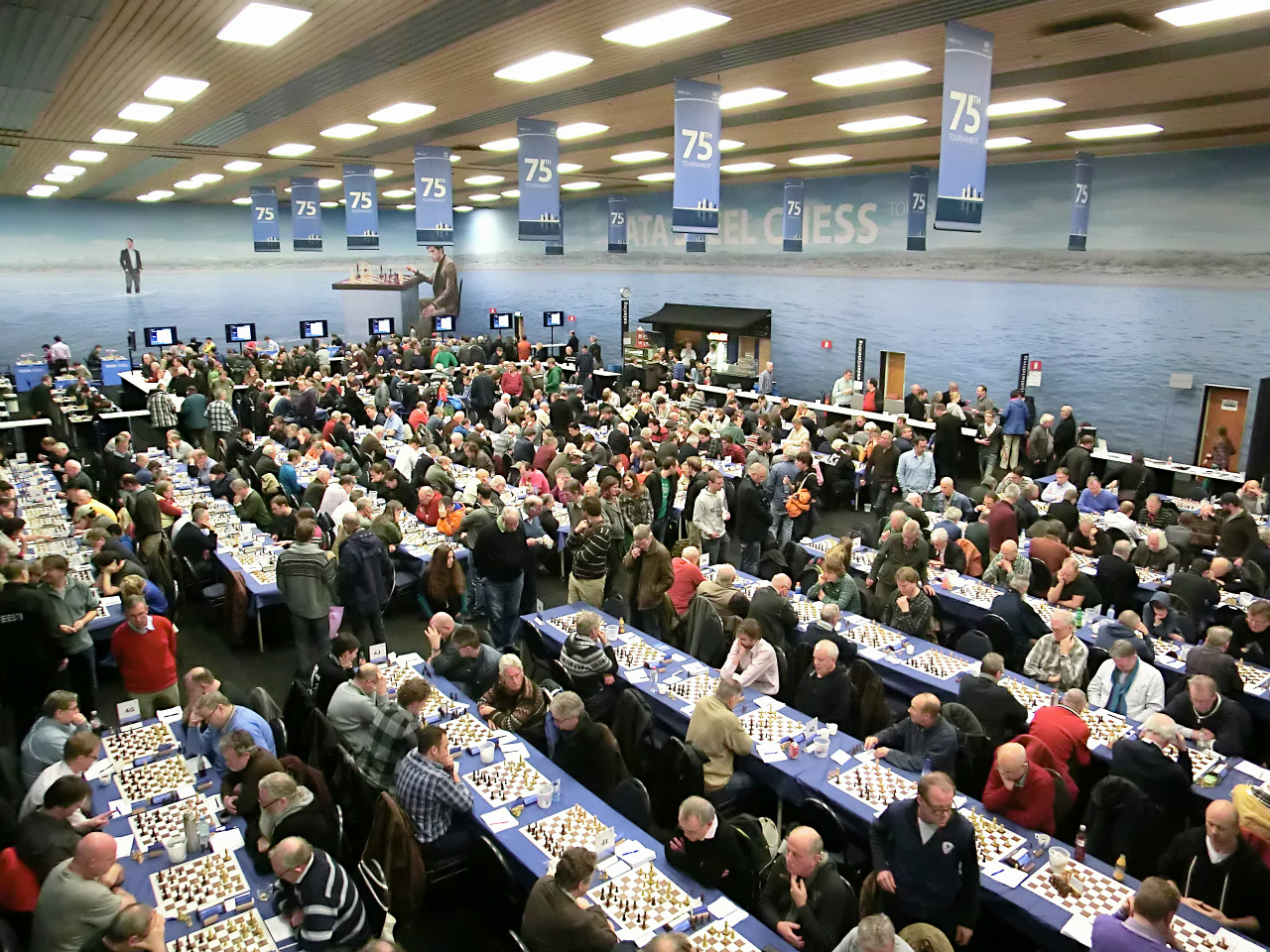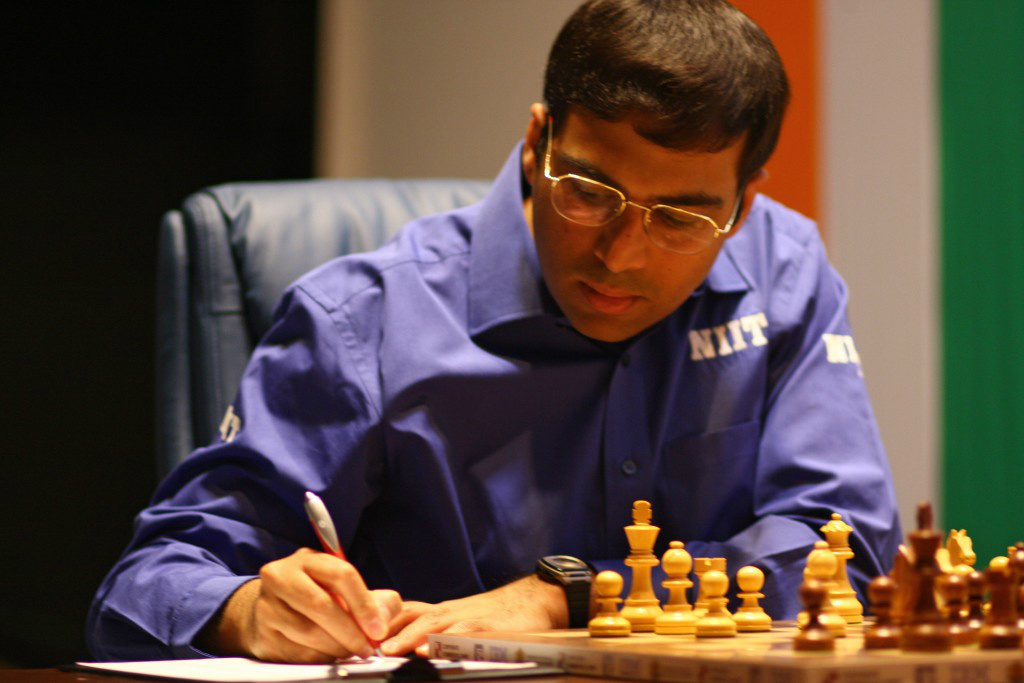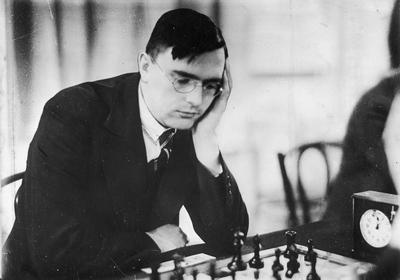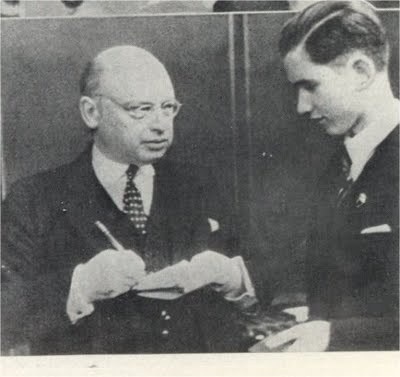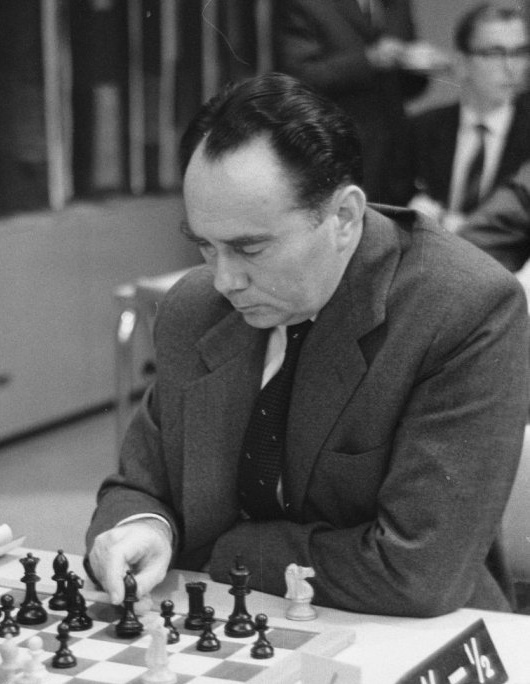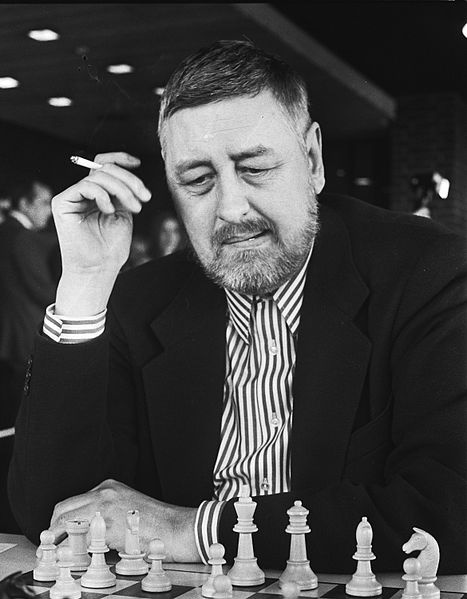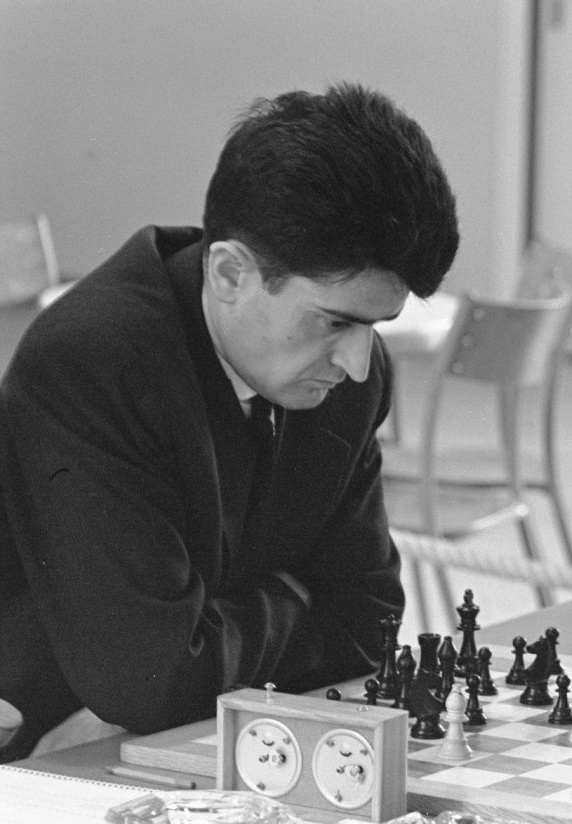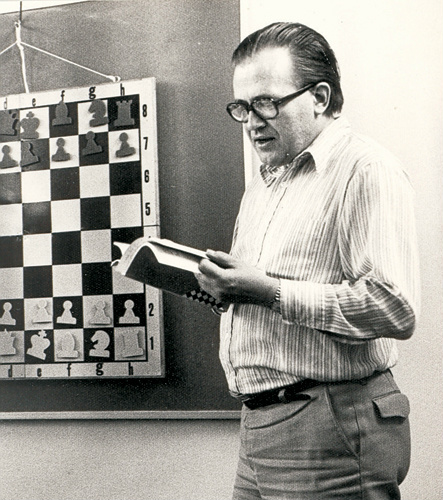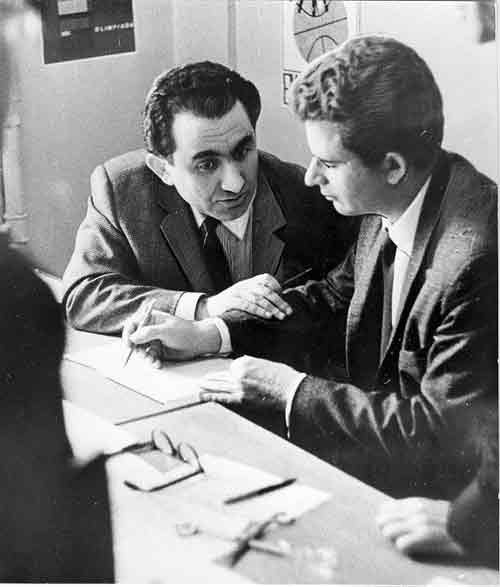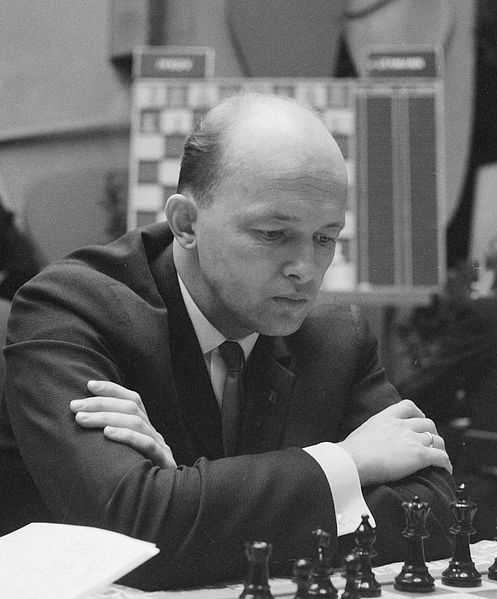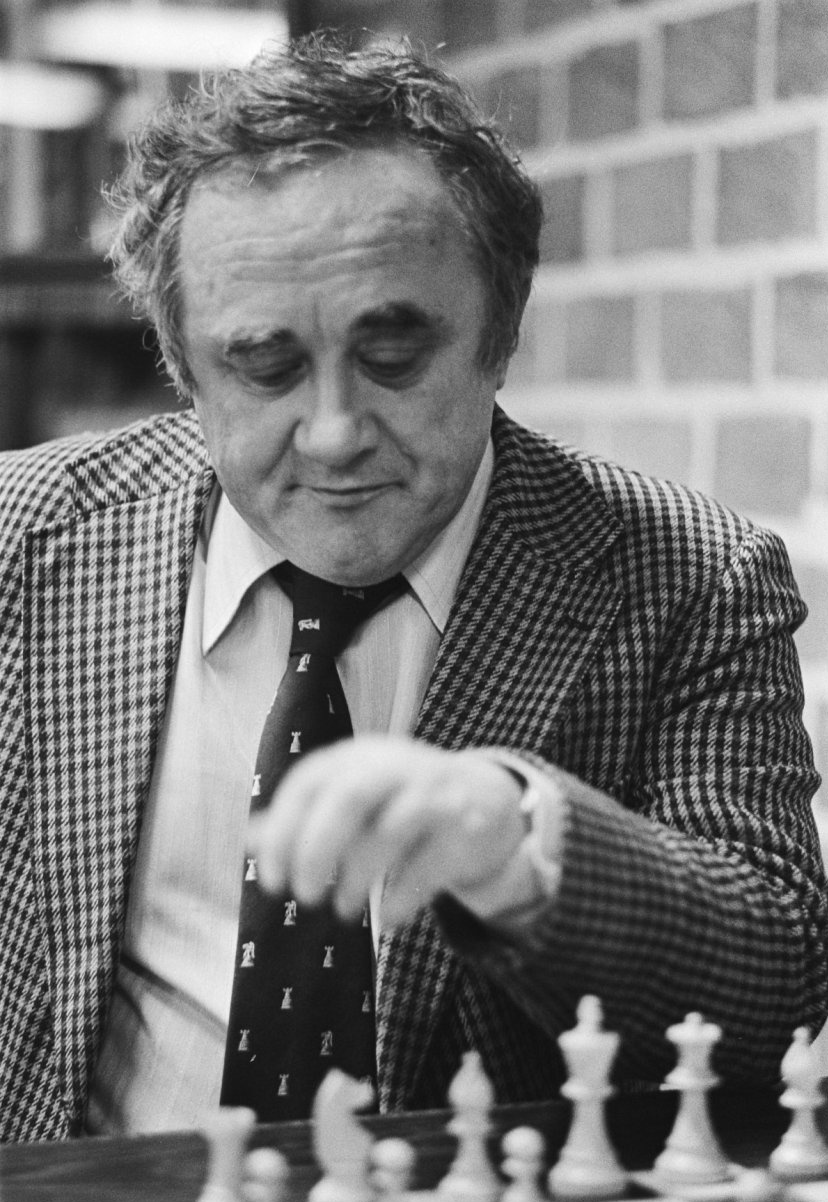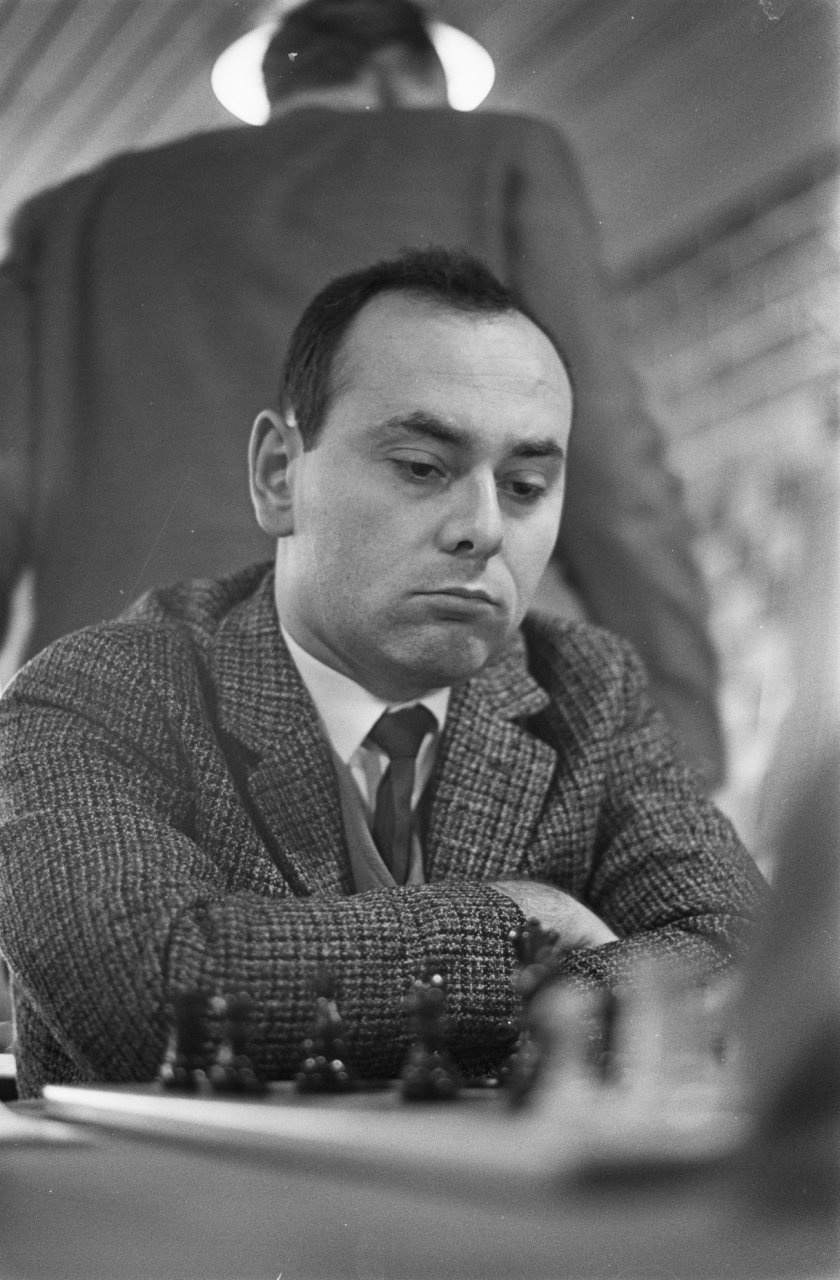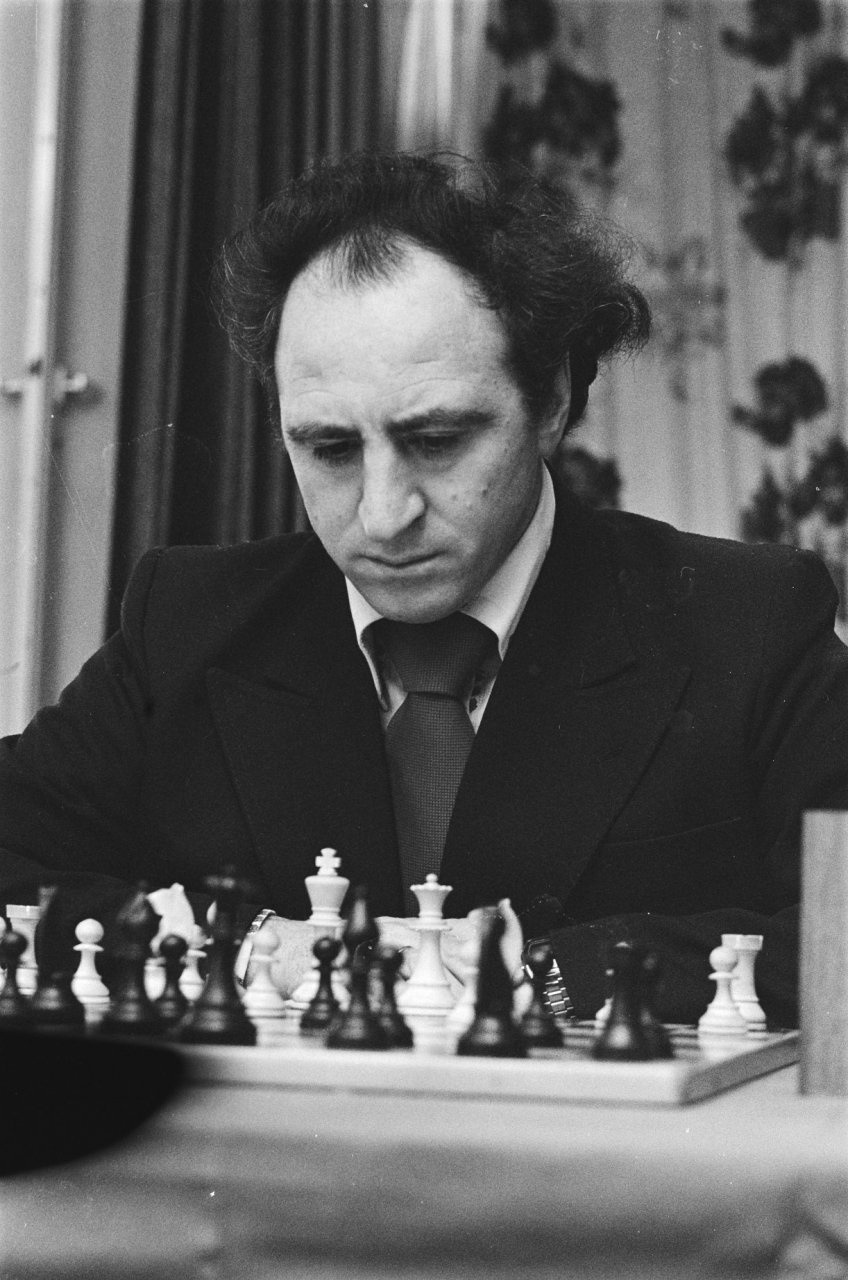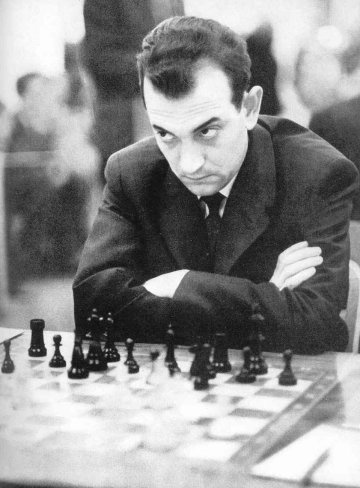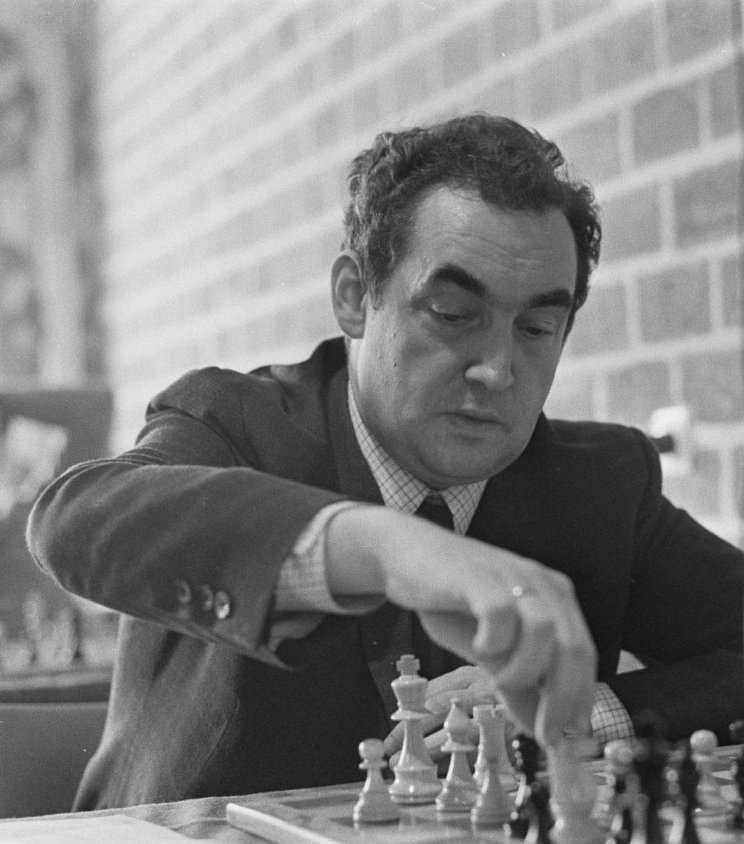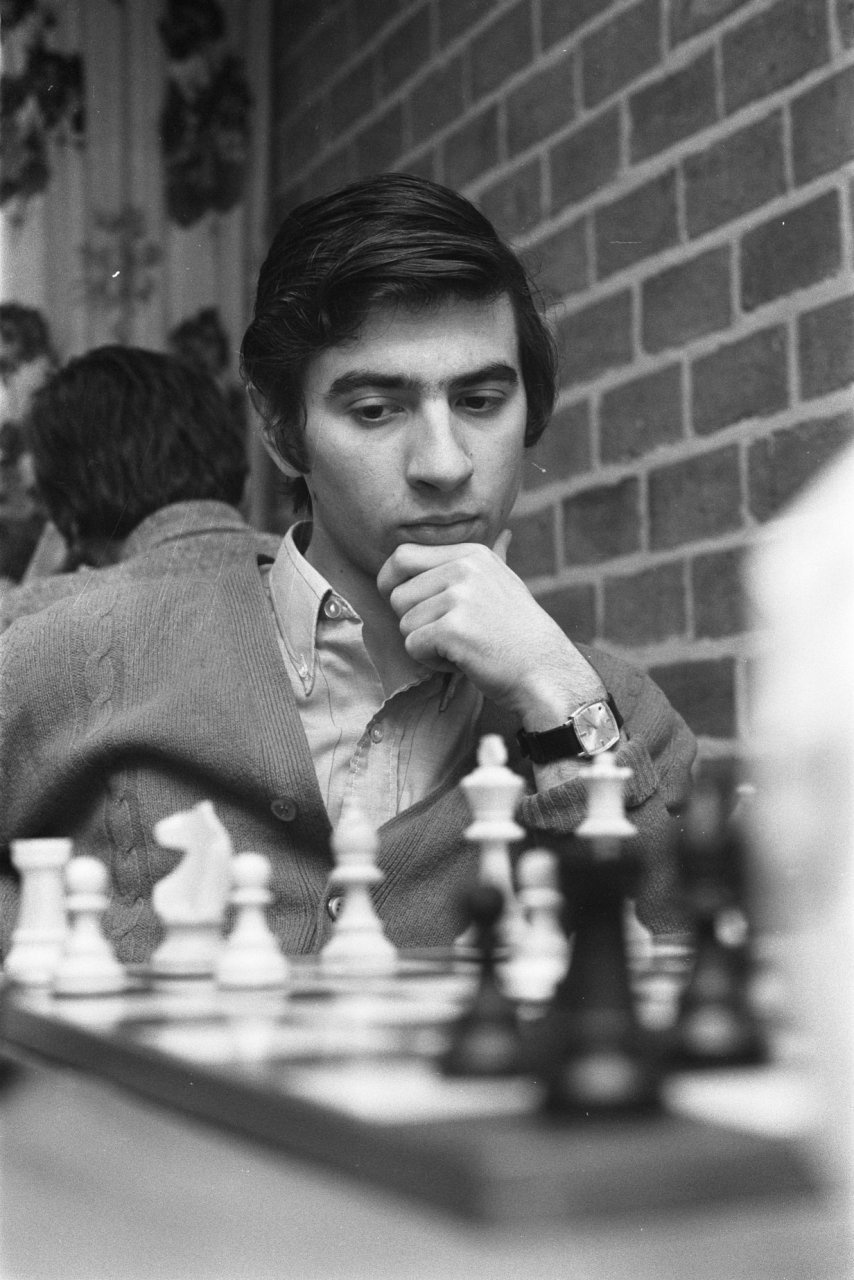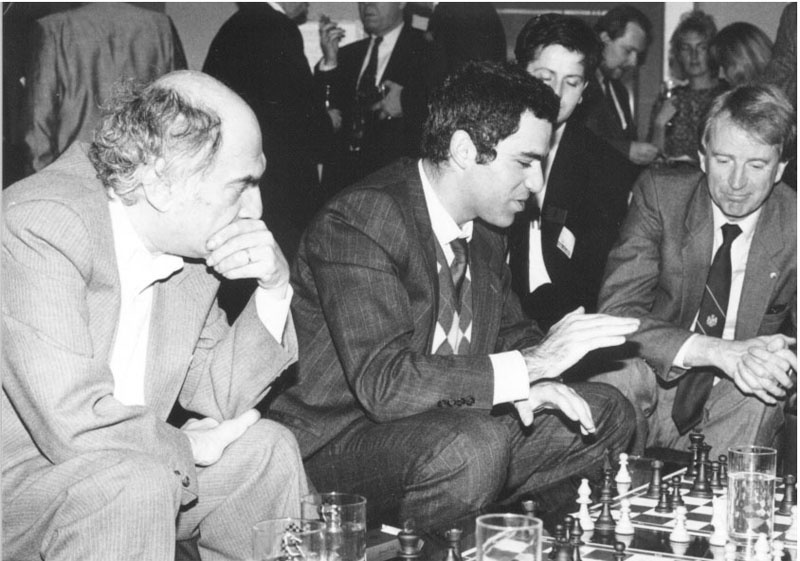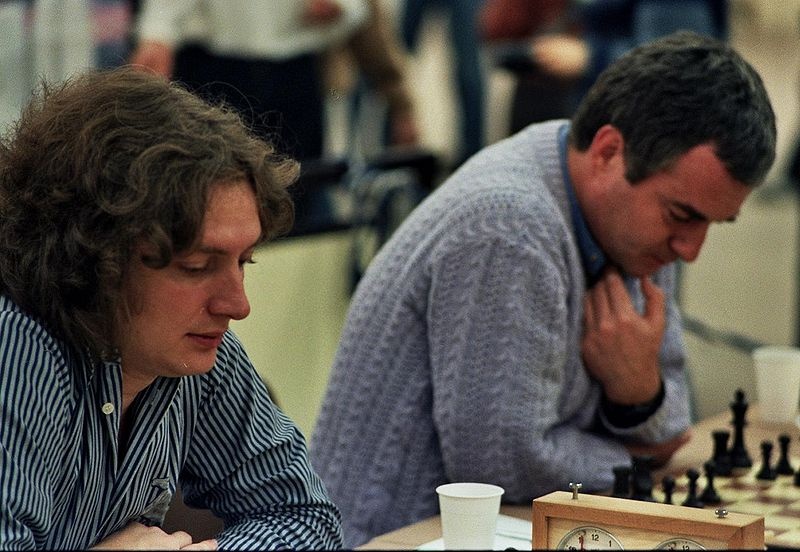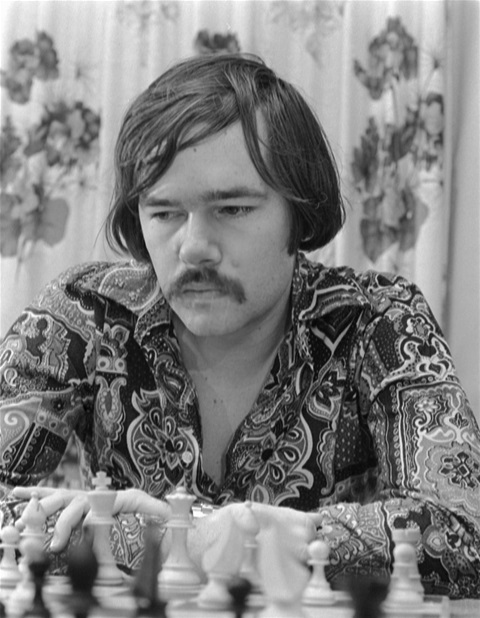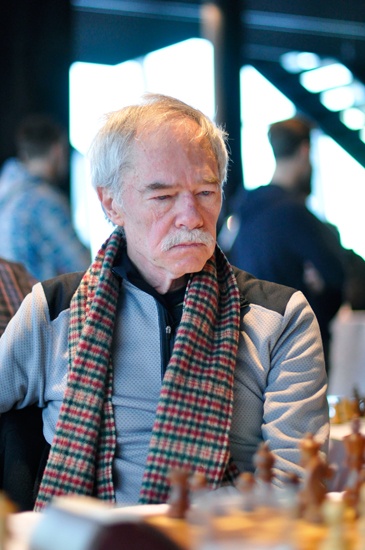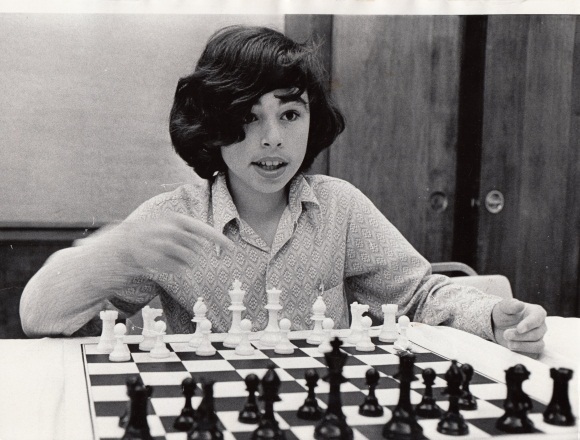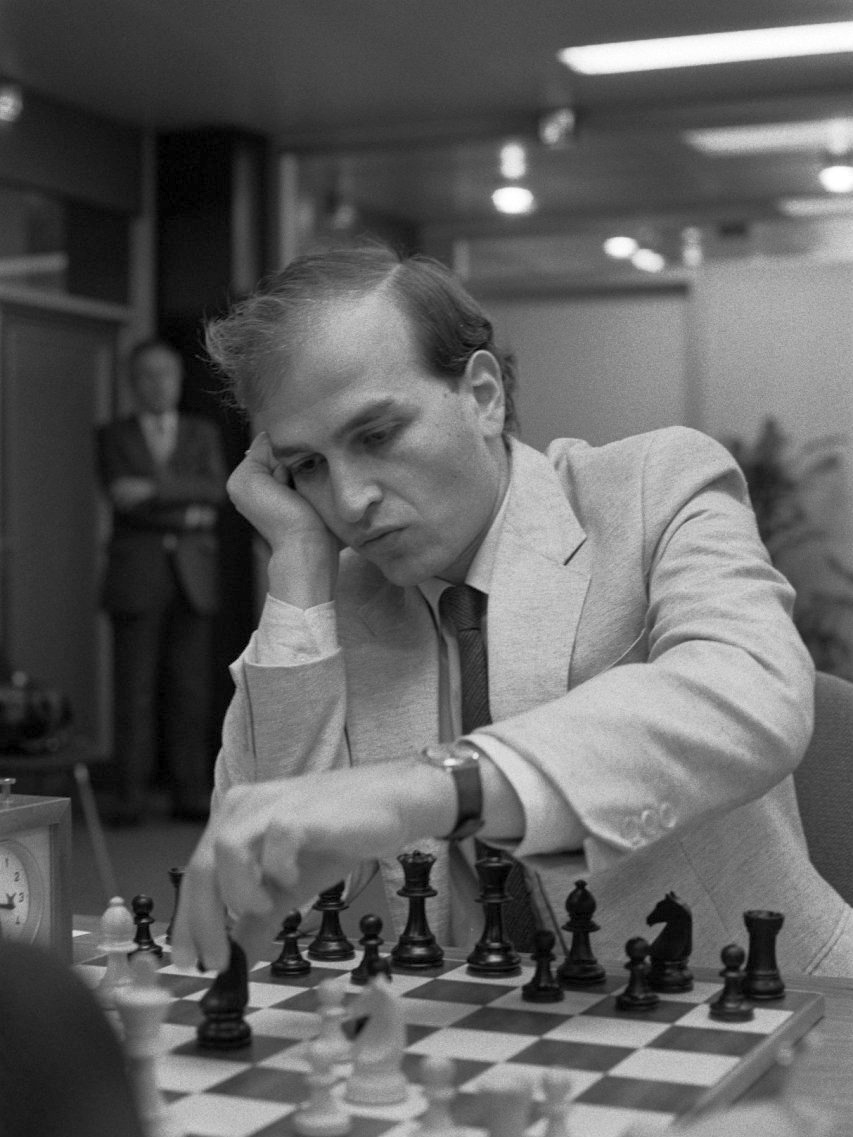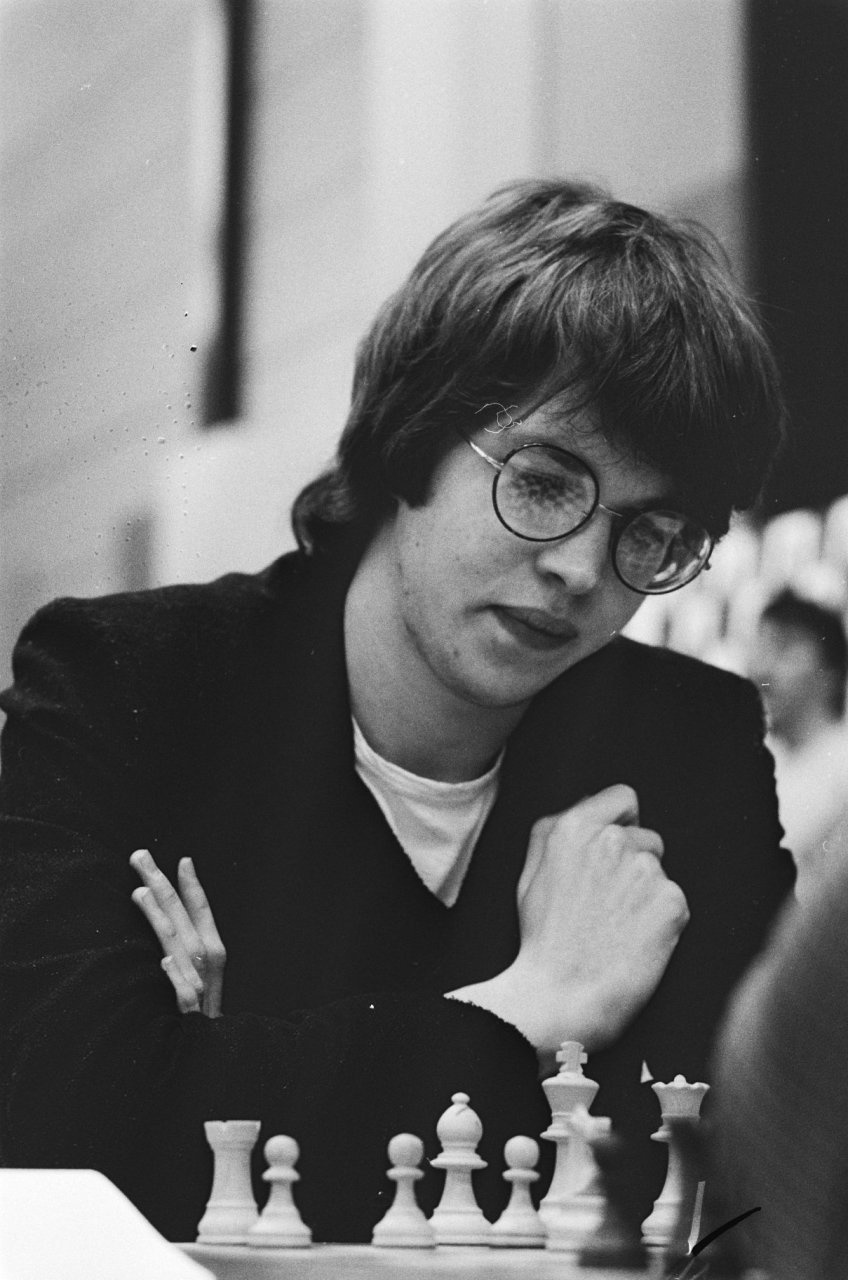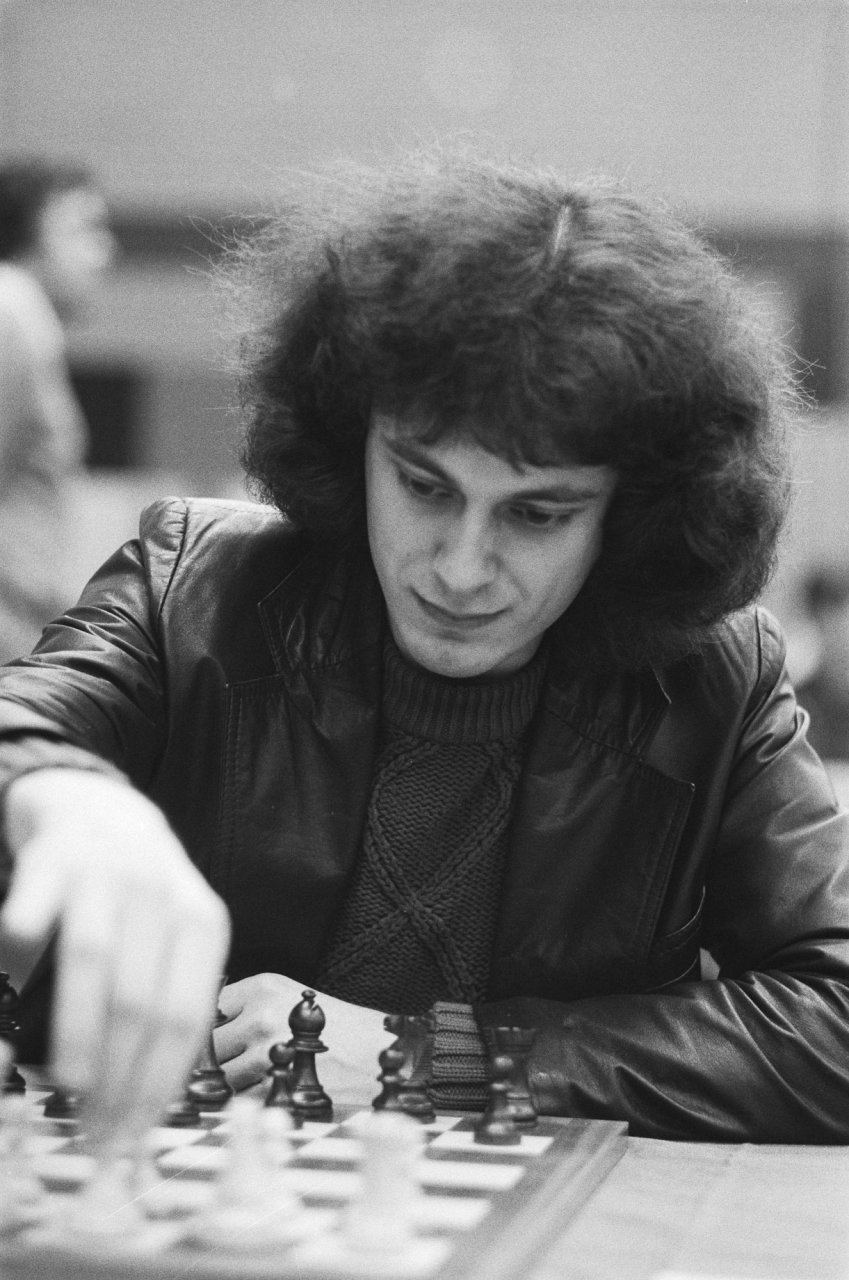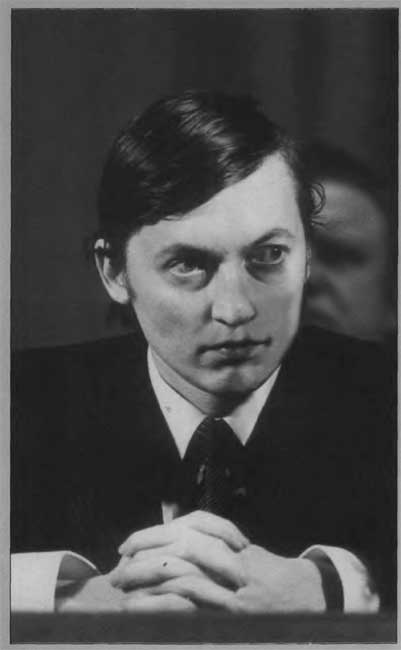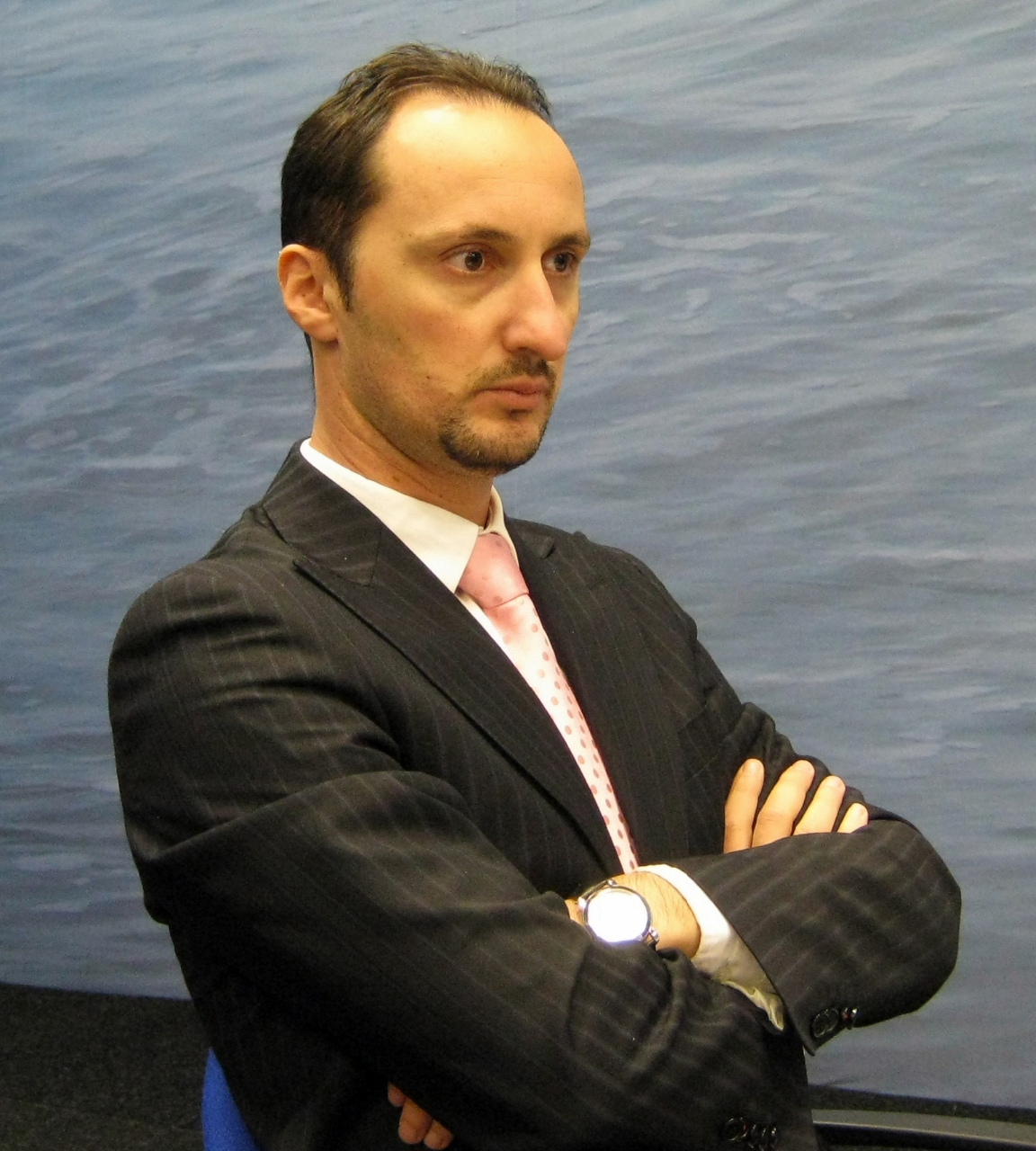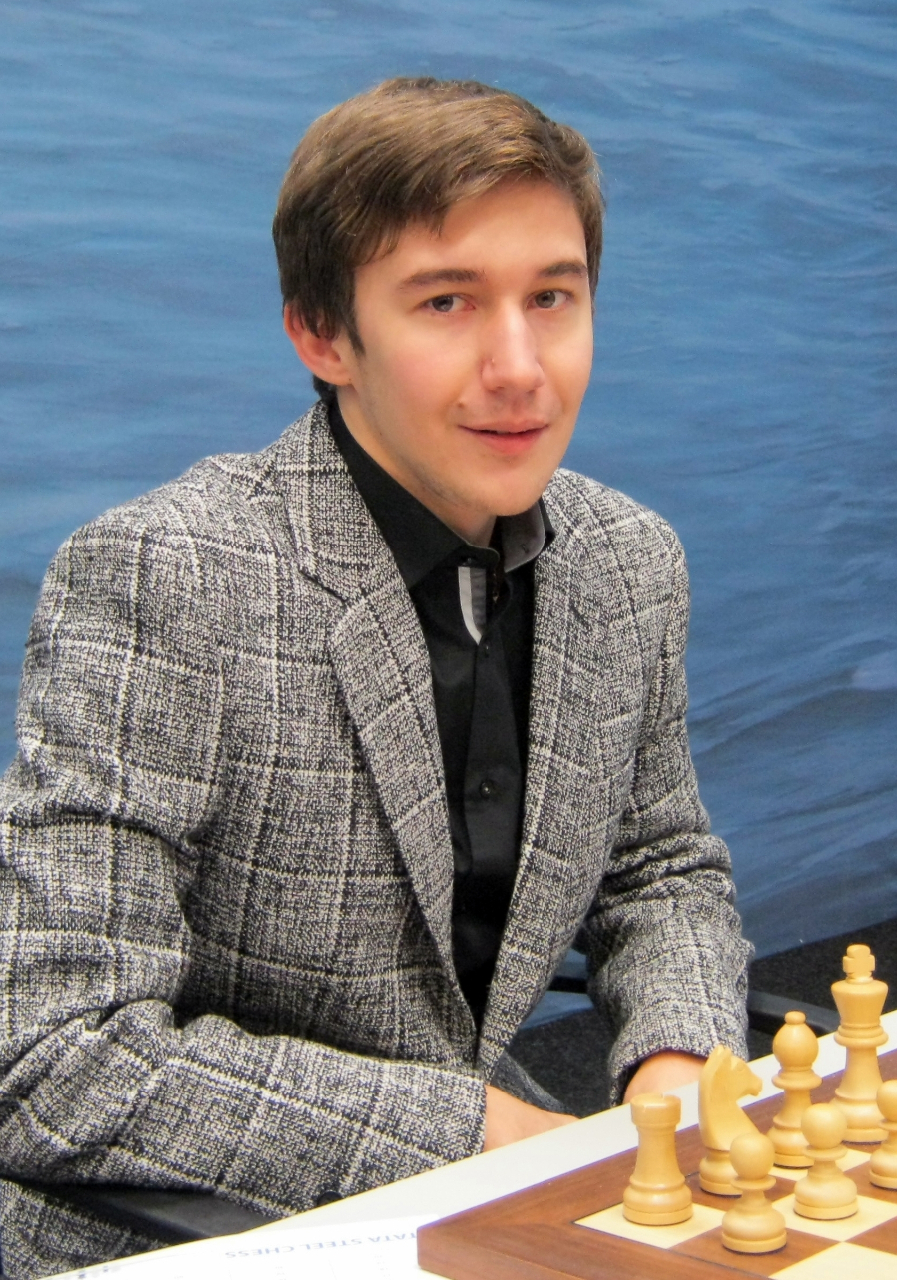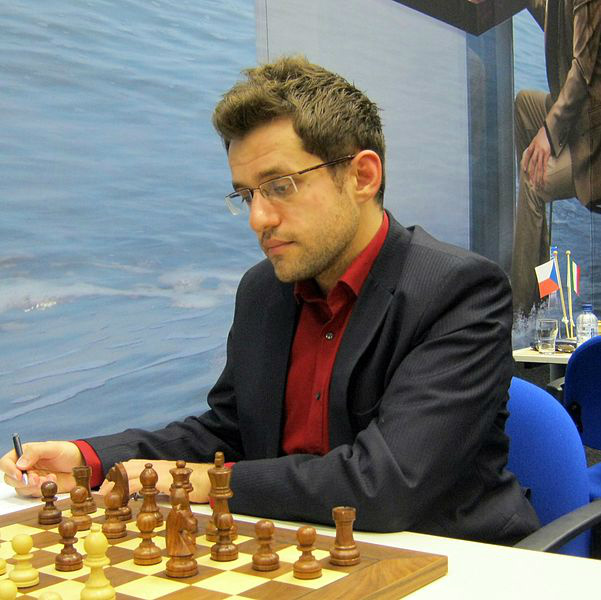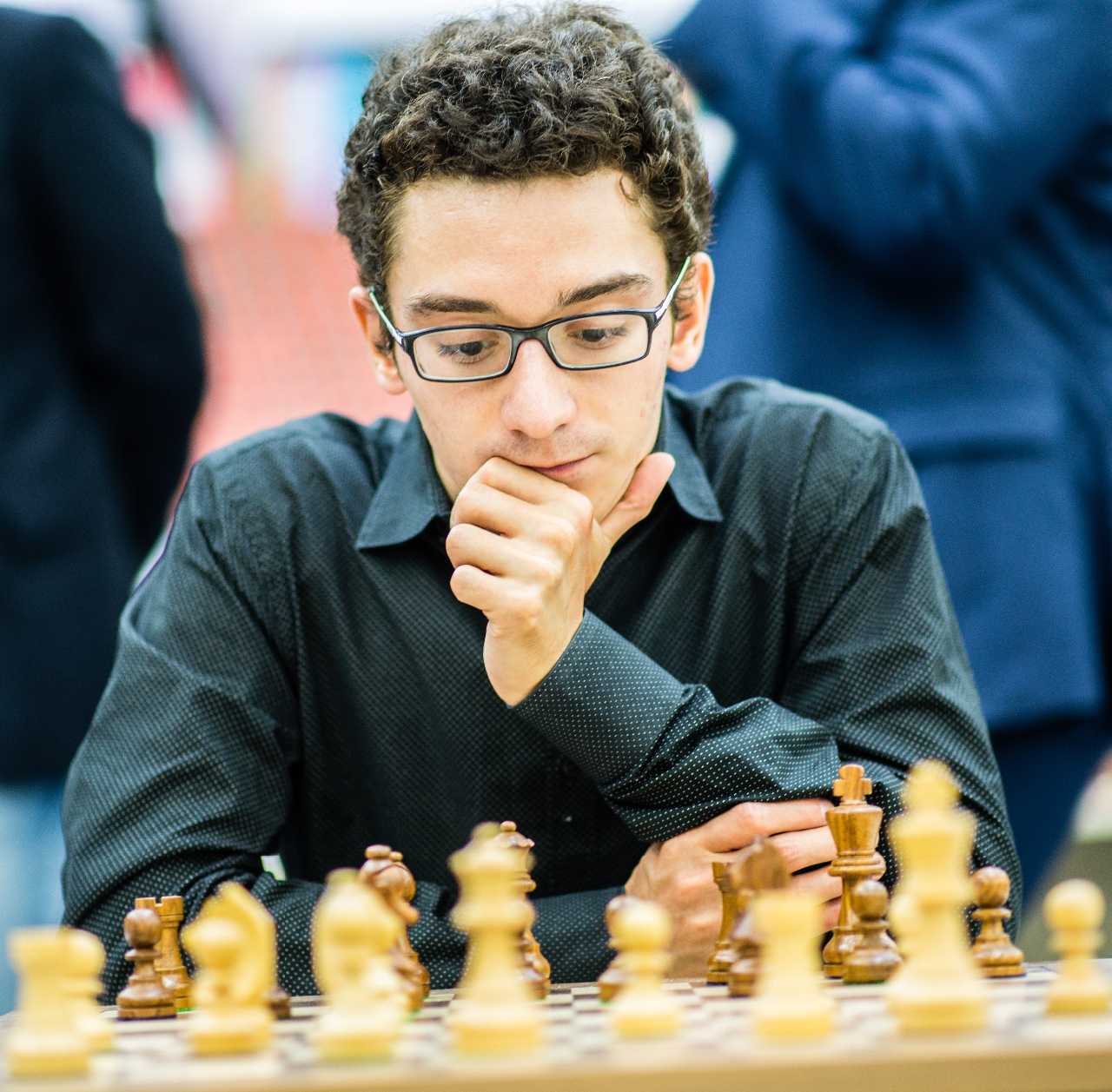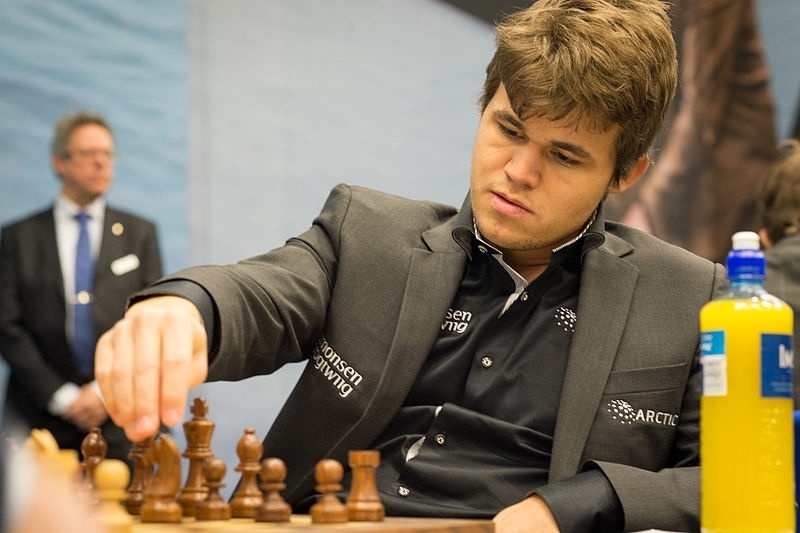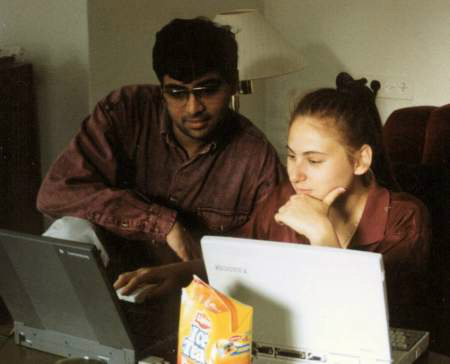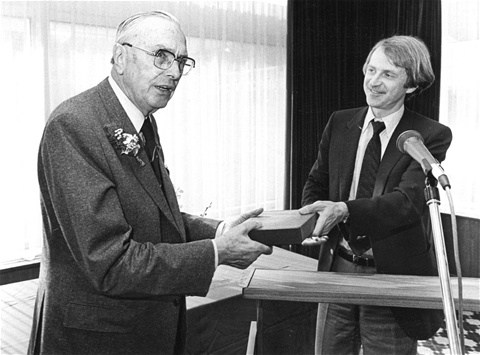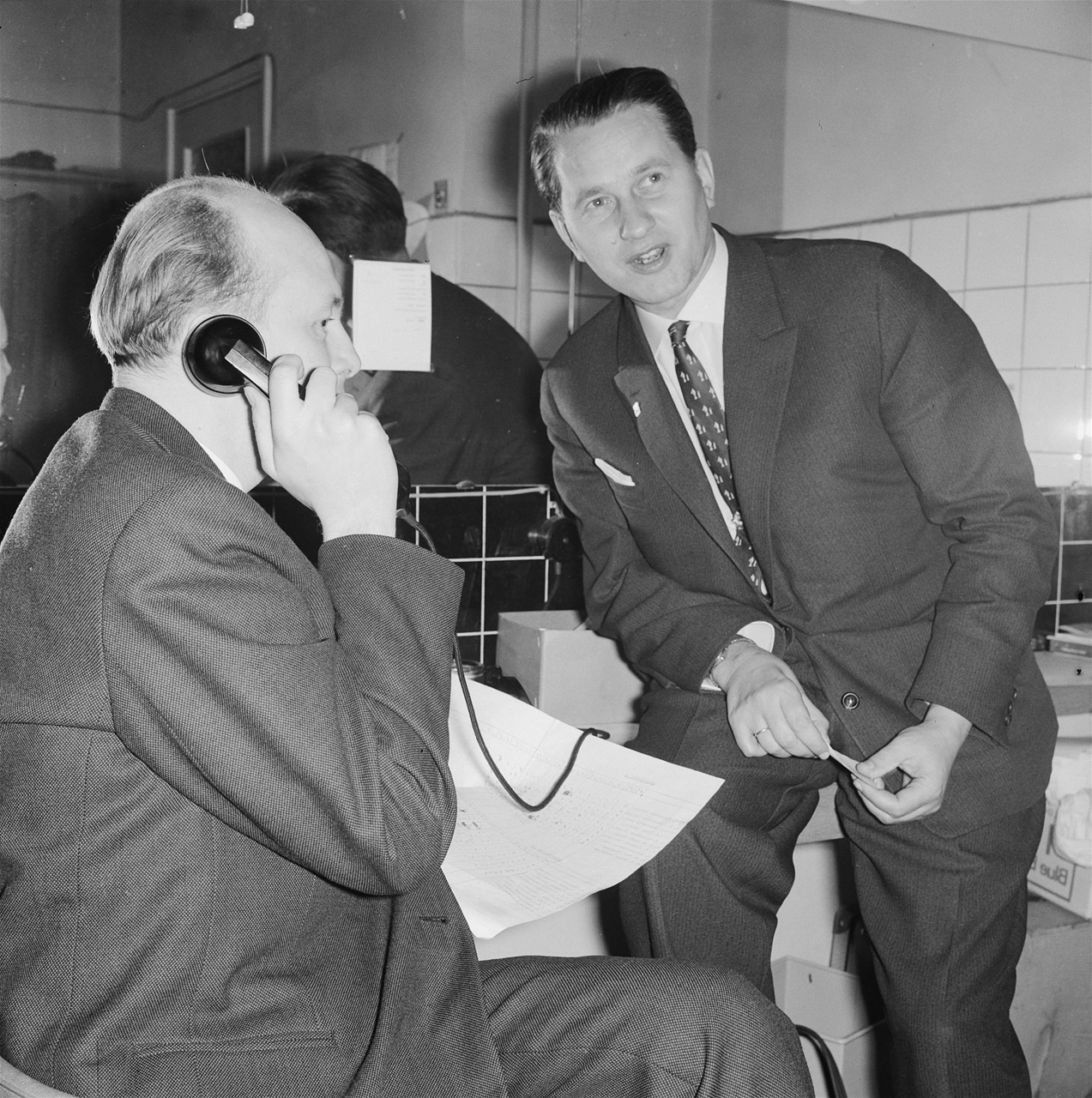Wijk aan Zee / former Beverwijk (1st 1938, 84th 2022) TATA STEEL (Corus, Hoogovens)
The Wimbledon of Chess
The Tata Steel Chess Tournament, formerly called the Corus Chess Tournament, until and including 1999 called Hoogovens Chess Tournament ("hoogoven" is Dutch for "blast furnace", literally "high oven"), is held every year, usually in January, in a small town called Wijk aan Zee, part of the larger Beverwijk (a town and municipality in the province of North Holland in the Netherlands).
From 1938 to 1967, the tournament always took place in Beverwijk, since 1968 in Wijk aan Zee. There was no tournament in 1945. Traditionally, a pea soup is served for all players as the first course of the concluding banquet, as a memory of the hunger winters during World War II.
The tournament has been held with several sections on top and huge amateur open, rapid, blitz, youth, senior and female events. In modern times, Wijk aan Zee has featured mostly three (all-play-all) sections -- labelled "A", "B", and "C" -- with the A-group featuring the world's top players, though grandmasters and seniors also make up most of the B-field and a significant portion of the C-field who is especially suitable for rising juniors. Winning the "B" or "C" section of the event typically guarantees the winner an invitation to the section above that one in the following edition.
Since 2014, the field is now pooled into two sections: a "Masters" group and a "Challengers" group (it has become custom to invite a veteran and a lady to participate in the Tata Steel Challengers).
Just for the record: in the years 1993 and 1995, Wijk has been played in a knock-out format with a parallel back-up open for the eliminated players.
Some single days are played externally since 2014, that year in the Rijksmuseum in Amsterdam and on the High Tech Campus Eindhoven, later the TATA Steel event visited Rotterdam and The Hague, the Spoorwegmuseum in Utrecht, the De Kuip stadium of soccer club Feyenoord Rotterdam or the Philharmonic Hall of Haarlem to present chess as sport and as art, the Sound and Vision (Beeld en Geluid) building in Hilversum or in The Academy Building of the University of Groningen.
The time control (TATA Steel Masters 2015) is 100 minutes for 40 moves, followed by 50 minutes for 20 moves, then 15 minutes for the remaining moves with 30 seconds cumulative increment for each move starting from the first move.
The Tata Steel Chess Tournament welcomes about two thousands of amateur players every year. Wijk aan Zee is definitely a Chess Festival for amateurs and professionals. All rounds are open to the public, except during Corona pandemic.
It was at Wijk in 1999, when Garry Kasparov created his masterpiece against Veselin Topalov:
http://www.chessgames.com/perl/chessgame?gid=1011478
The strongest event in the series was played in 2001, when nine top ten players participated (#1, #2, #3, #4, #5, #6, #7, #8, #9), Garry Kasparov won the tournament for the third time in a row outright.
First winner in 1938 were Dutch Philip Bakker and Jilling Van Dijk (in its inception with only four players, and during the early years, all of the invited participants were coming from the Netherlands). Since 1946 the tournament is international and with the participation of players from the (former) Soviet-Union from 1960 on, it is clearly a super strong event, now regarded as most traditional chess elite supertournament (because Hastings switched to be an Open).
Recent winner in 2022 is, once again, the reigning World Champion from Norway, Magnus Carlsen.
Record winner with eight titles at the Hoogovens/Corus/Tata Steel tournament in its long history since 1938, is Magnus Carlsen.
Magnus Carlsen launched his chess career as a 13 years young child at Wijk aan Zee as winner of the "C" group already in 2004, subsequently achieving his first GM norm. In 2006, he was first (alongside with Alexander Motylev) in the "B" group. In 2008 (alongside with Levon Aronian), 2010, 2013, 2015, 2016, 2018, 2019, and 2022, Carlsen won the "A" group. Carlsen is a regular visitor in Wijk aan Zee and played for the 18th time (overall) in 2022.
Vishy Anand won or co-won five times, Professor Max Euwe, Lajos Portisch, Viktor Korchnoi, and Levon Aronian won four times each (sole or shared) at Beverwijk and Wijk aan Zee respectively.
Garri Kasparov did take part and won three times in a row outright, further thrice-winners are John Nunn, Jan Hein Donner, and Efim Geller (all shared).
Anatoly Karpov had two wins in four entries. Other World Chess Champions Mikhail Botvinnik, Mikhail Tal, Tigran Petrosian, Boris Spassky, and Vladimir Kramnik (his shared first place with Anand in 1998 remained the only win in thirteen participations between 1998 and 2019), as well as Paul Keres (out of two participations), did win once.
Further famous winners include also Alberic O'Kelly de Galway, Nicolaas Cortlever, Theo van Scheltinga, Lodewijk Prins, Savielly Tartakower, Jan Hein Donner (twice), Herman Pilnik, Nicolas Rossolimo, Vasja Pirc, Borislav Milić, Gideon Ståhlberg, Aleksandar Matanović, Friðrik Ólafsson (twice), Bent Larsen (twice), Borislav Ivkov, Petar Trifunović, Iivo Nei (together with Paul Keres in 1964, titleless Iivo Nei got as a result the IM title by FIDE, but never the GM), Mark Taimanov, Lev Polugaevsky (twice), Walter Browne (twice), Ljubomir Ljubojević, Gennadi Sosonko (twice), Yasser Seirawan, Jan Timman (twice), Yuri Balashov, Ulf Andersson, Alexander Beliavsky, Nigel Short (twice), Predrag Nikolić (twice), Zoltán Ribli, Gyula Sax, Boris Gelfand, Valery Salov (twice), Alexey Dreev, Vassily Ivanchuk, Evgeny Bareev, Péter Lékó, Veselin Topalov (twice), Teimour Radjabov, Sergey Karjakin, Hikaru Nakamura, Wesley So, and Fabiano Caruana.
Vasily Smyslov <could not win> (one particpation in 1972, coming in shared 5th-7th). Two great players at Wijk aan Zee, regularly competing but not winning are Robert Hübner, taking part nine times between 1971 and 1996, and Alexei Shirov, taking part ten times between 1993 and 2011.
Bobby Fischer (and Reshevsky, Alekhine, Capablanca, Lasker) did never take part.
Viktor Korchnoi had to wait for a longtime to be nominated by his Federation, finally he got a spot in 1968 (that was also the first tournament played at Wijk aan Zee) and did win overwhelmingly, starting his personal Hoogovens career with 8/8, eight game wins in a row (!) from round 1 (victory vs. Nikola Padevsky) to round 8 (victory vs. Mikhail Tal). Viktor Korchnoi finished winning Wijk with 12 out of 15, three full points ahead of shared runner-up competitors Lajos Portisch, Mikhail Tal and Vlastimil Hort. What a premiere performance!
Korchnoi also won his second and last entry for USSR at Wijk aan Zee (Hoogovens) in 1971. He won the tournament again as stateless player in 1984 (shared with Beliavsky) and in 1987 (shared with Short), coming in on a podium place (1st, 2nd or 3rd) in total seven times out of thirteen entries. As Korchnoi going around 60 (plus) years, he subsequently faced some midfield results and one first-round knock-out elimination. In 1991, two months after his 60th anniversary, Viktor Korchnoi played and won a Candidate match against Gyula Sax at Wijk aan Zee. Korchnoi's match win is integrated in the official homepage statistics (showing automatically then five victories in the database), of course this separate event does not count as a tournament win.
This is the second longest major recurring international classical chess tournament in annually tradition still existing.
Wijk aan Zee
Beverwijk
Tata Steel Chess Tournament (Wikipedia)
http://www.tatasteelchess.com (Tournament homepage)
http://www.tatasteelchess.com/history (History full stats & facts with all players and games)
http://www.endgame.nl/wijk.htm (Survey
by Jan van Reek, inactive)
Prof. Machgielis "Max" Euwe (May 20, 1901 in Amsterdam; † November 26, 1981), World Chess Champion from the Netherlands, democratic FIDE president and a true gentleman, four times winner at Wijk aan Zee. Picture from 1935, winning the world chess crown against Alexander Alekhine. After a hard fight in 30 games, Euwe achieved victory of 15½-14½ (winning nine games in a title match!) to become the 5th World Chess Champion. Photographer unknown, photo taken from www.audiovis.nac.gov.pl/obraz/185286 (to open the link, please copy the link)
Albéric O'Kelly de Galway, winner 1946 at Beverwijk in the first edition after World War II. The Belgian chess Grandmaster and International Correspondence Chess Grandmaster, was the third ICCF World Champion in correspondence chess (1959–1962). O'Kelly de Galway was made an International Arbiter in 1962 and was the chief arbiter of the world chess championship matches between Tigran Petrosian and Boris Spassky in 1966 and 1969. In 1974 he was the arbiter for the Candidate's Final Karpov versus Korchnoi at Moscow.
O'Kelly de Galway spoke French, Dutch, German, English, Spanish, and Russian well, and also some Italian. He published a wide range of chess books and articles, often in languages other than French. He was known as a distinguished gentleman
Jan Hein Donner, thrice-winner at Beverwijk, in 1950 ahead of 2nd/3rd Euwe and Rossolimo, in 1958 shared with Euwe, and in 1963 ahead of Bronstein.
Donner, also a regular chess columnist predicted once: "Computers cannot play chess at all, and they will never be able to, at least not for the next two thousand years or so, for that would take a technology that is still far beyond the horizon..." (originally published in NRC Handelsblad, 13 April 1981)
Aleksandar Matanović, winner in 1957 (picture from 1961). The serbian grandmaster is founder, author and longtime editor-in-chief of the leading chess encyclopedias CHESS INFORMANT. Garry Kasparov asserted: "We are all children of Informant"
In 1966, in the former Yugoslavia, some chess enthousiasts had a few interesting ideas. They wanted to collect the most distinguished chess games from all major events, and publish them.
For this, they established a “chess language” - an international code akin to those used in mathematics and music, equally understandable to chessplayers all over the globe. Lastly, they subsitituted traditional opening names with a classification of chess openings based on evaluation of all the available hitherto played games. In 1966, the first volume of Chess Informant was published.
Within a few years, their publication CHESS INFORMANT (also called “Informator”) became the one and only chess bible (or should we say: bibles?) for travelling chess professionals, who in those days were known to carry more chess books than clothes in their suitcases, something we can hardly imagine in the digital era.
Iivo Nei, born 1931 in Tartu (Estonia), winner in 1964 (together with estonian compatriot Paul Keres, ahead of Portisch as third, Ivkov, and Larsen, all previous or succeeding winners). It was his first participation, Nei received then the IM title for his co-win (but was never awarded as Grandmaster, at his peak time still a rare honour, and ELO norms not yet possible), he will certainly be for ever the last <non-titled> tournament triumphator at Beverwijk / Wijk aan Zee!
Nei won the Estonian Championship eight times (1951, 1952, 1956, 1960, 1961, 1962, 1971, 1974). USSR Junior Champion in 1948 (joint with Viktor Korchnoi who had won already in 1947, both born 1931).
Nei was one of Boris Spassky's seconds (along with Efim Geller and Nikolai Krogius) for the 1972 Fischer vs. Spassky World Championship match.
Efim Geller (1925-1998), power player with a plus lifetime score against Bobby Fischer and as well an overall plus record against the World Champions he played! Geller was the chess second (assistant) of the century, his brain forces supported the Soviet national team many times, and helped among others significantly Nona Gaprindashvili, Mikhail Botvinnik, Boris Spassky, and Anotly Karpov. Geller won three times, at Beverwijk in 1965 (together with Portisch), in 1969 (together with Botvinnik), and in 1977 (together with Sosonko)
Lev Polugaevksy, winner at Beverwijk in 1966 and at Wijk aan Zee in 1979, participating only in these two tournaments - winning both times outright! Polugaevsky was a frequent contender for the world chess championship (eliminated in 1974 by Karpov, and then twice in a row 1977 and 1980 in the semi-finals by Korchnoi) and one of the strongest players in the world from the mid 1960s until the mid 1980s, ranking third shared of the world in the (then yearly) ELO list of 1972 and again third shared in 1976. Also a distinguished author and opening theorist whose contributions in this field remain important to the present day
Mark Taimanov, winner at Wijk aan Zee in 1970. Taimanov was a top concert pianist in the Soviet Union. With his first wife, Lyubov Bruk, he formed a piano duo, some of whose recordings were included in the Philips and Steinway series Great Pianists of the 20th Century. Eleven years old, he played a young violinist in the 1937 film "Beethoven Concerto". He remarried late in life and became father of twins at the age of 78. Taimanov played in 23 USSR Chess Championships (a record equalled only by Efim Geller), tying for first place twice, in the 1952 Soviet Championship, Taimanov tied for first with Mikhail Botvinnik, but lost to him in their play-off for the title. Taimanov then won the national title in 1956 after a play-off against Yuri Averbakh and Boris Spassky. In 1993 and 1994 Mark Taimanov won the World Senior Chess Championship
Ljubomir Ljubojević, winner at Wijk aan Zee in 1976 (shared with Fridrik Olafsson). Ljubojević has defeated almost every Top Grandmaster active during his career and achieved a number of strong tournament victories. He was ranked sole third of the World in both half-year ELO lists in the year 1983. Only a lack of consistency prevented him from making an impact on world championship cycles. This picture shows us a twenty-two young "Ljubo" in 1972 at Wijk aan Zee
Analysis by Mikhail Tal, winner in 1973, Garry Kasparov, thrice-winner at Wijk aan Zee in 1999, 2000 & 2001, and Fridrik Olafsson, successor of Prof. Max Euwe as democratic FIDE president and tournament winner as an amateur in 1959 at Beverwijk (unbeaten, ahead of Erich Eliskases) and seventeen years later in 1976 at Wijk aan Zee (unbeaten, shared with Ljubomir Ljubojević, ahead of 3rd/4th Bojan Kurajica and Mikhail Tal)
Chess and...
Walter Browne: He was a wild one!
The australian born, US-american grandmaster won twice at Wijk aan Zee, in 1974 outright, and in 1980, shared with rising fellow-countryman, syrian born GM Yasser Seirawan
Browne, Walter Shawn (born 21.01.1949. He died suddenly in Las Vegas, Nevada on June 24, 2015, having just tied for 9th-15th in the National Open). Grandmaster 1970, IM 1969, journalist and commentator.
Browne was born in Sydney, Australia, to an American father and an Australian mother. He came to the US as a three years old child when when his family moved to the New York area, spent 1968-1973 back in Australia and then settled in the US. Browne moved to California in 1973 when he was 24.
Winning the U.S. Junior Championship at the age of seventeen, and at twenty the Australian Championship (for a time he represented both countries). In 1969, he represented Australia at the Asian Zonal tournament in Singapore, earning the International Master title – which earned him the same year an invitation to an international grandmaster tournament in San Juan, Puerto Rico. There, he gained the grandmaster title (awarded in 1970) by tying for second through fourth places, with Bruno Parma and Arthur Bisguier, behind reigning World Champion Boris Spassky.
At Rovinj / Zagreb in 1970, Walter Browne played and drew Bobby Fischer in a very entertaining game. Browne had Fischer on the ropes here but Bobby survived in a very entertaining game which was drawn after 94 moves. This game turned out to be their only one, because Fischer stopped playing after becoming World Chess Champion in 1972.
Browne was a dominant presence in American chess in the 1970s and 1980s:
Six-time U.S. Champion 1974, 1975, 1977, 1980 (three-way tie), 1981 (two-way split), and 1983 (three-way tie), U.S. Senior Champion 2005, and U.S. Junior Champion 1966. Australian Champion 1969. Plus Winnipeg 1974 (Pan American Championship), Mannheim 1975 (Internat. FRG Championship)
He won or was equal first in Venice 1971 outright, Wijk aan Zee 1974 outright, Lone Pine (Open) 1974 as clear first, Reykjavik 1978 (GM tournament, ahead of 2./3. Larsen and Miles, followed by 4./5. Hort, Lombardy, 6./7. Polugaevsky, F. Olafsson, 8. Kuzmin, 9. Smejkal, etc.), Santiago de Chile 1981 outright, again Wijk aan Zee (joint with Seirawan) 1980, and…
Poker
Browne has been a professional poker player since the early 1970s. In 2007, he was runner up in the H.O.R.S.E. event of the World Series of Poker
the 1st Lady’s Cup, Solo (aka Surakarta) / Denpasar, Indonesia 1982: Walter Browne taking the championship trophy, edging out compatriot Henley on the better SB; co-winner IM Ron Henley, who had already one GM norm in his pocket, then made the GM title, achieving exactly the needed 17.5 / 25 points.
This Mammoth Tournament saw 26 participants competing (amongst others Miles, Keene, Hort, Ribli, Csom, Gheorghiu, Kurajica, Matanovic, Hulak, Radulov, Sosonko, Christiansen, Suttles, Bellon Lopez, and then IM Chandler), it is the biggest round robin chess gm tournament after World War II !!
http://indonesiabase.com/1st-first-ladys-cup-solo-denpasar-1982/
Winning the New York (Open) 1983 (shared with Alburt, Miles, Shirazi, Kudrin), Gjovik, Norway 1983 (alongside with Adorjan and Nunn, ahead of Miles, Agdestein, Spassky, Ftacnik, and others), Nimzowitsch Memorial 50th anniversary of his death in Naestved, Denmark 1985 (alongside with Larsen and Vaganjan, ahead of Short, Nikolic, Tal, Nikolic, Nunn, Andersson, Ftacnik, and others), Canadian Open, Windsor 1991 as clear first.
Asides from the above results, Walter Browne won sole or shared the National Open (Las Vegas) eleven times, the American Open seven times, the World Open three times, and the traditional U.S. Open Chess Championship twice (1971 alone and 1972 together with Larry Evans).
Browne was a participant in the Olympiads in 1970 & 1972 for Australia; 1974, 1978, 1982, 1984 for the USA. Three-times participant in Interzonals, although he never made it to the Candidates.
Winner of many chess brilliancy prizes. Founder of the World Blitz Chess Association (WBCA, existing from 1988 to 2004). Regular contributor as chess journalist and commentator. Browne was introduced to the US Chess Hall of Fame in 2003.
In 2012, Browne published an autobiography and collection of his best games, The Stress of Chess ... and its Infinite Finesse.
Best ELO: 2585 in 1976. Best ranking: 14= (Jan 1976), second best ranking: 18 (Jan 1984).
Walter Browne has been also a professional and successful poker player since the early 1970s.
Young Yasser Seirawan won as an IM (!) at Wijk aan Zee (Hoogovens) in 1980 together with Walter Browne (Korchnoi as clear third, 4.-6. Biyiasas, Timman and Alburt, 7.-8. Ree and Robert Byrne, etc., 14 players, the tournament was boycotted by the Soviet Union). Seirawan then made his final GM norm, immediately becoming a Grandmaster. Seirawan also won his game at Wijk against Viktor Korchnoi, who then invited Seirawan to Switzerland, where Korchnoi was training for his Canididate's campaigning, Seirawan acted as a second of Korchnoi.
For the 1985 Interzonal in Biel, Seirawan had arrived in Switzerland a week before the tournament to work 8-10 hours a day with Korchnoi as his coach. Seirawan played well, was always among the leading group, and became the first USA player to advance from an Interzonal to the Candidate's since Robert Byrne in 1973.
Yasser Seirawan was born in Damascus, Syria. His father was Syrian and his mother an English nurse from Nottingham, where he spent some time in his early childhood. When he was seven, his family emigrated to Seattle (United States), at 19, Seirawan won the World Junior Chess Championship in 1979.
A four-time United States champion, he is also a widely published chess author and profilic commentator. The photo is from 1973: Mechanics’ Institute, Library and Chess Room, Newsletter 604, chess.milibrary.org
Beliavsky won the World Junior Chess Championship in 1973 and the USSR Chess Championship four times (in 1974, 1980, 1987 and 1990).
Alexander Beliavsky was joint winner at Wiik aan Zee in 1984 with Viktor Korchnoi; the tournament that ended the soviet boycott since Korchnoi's emigration after the IBM-Amsterdam tournament in 1976.
Beliavsky won twice at Tilburg 1981 (as clear first ahead of Petrosian, Timman, Portisch, Ljubojevic, Spassky, Kasparov!, Larsen, Hübner, Miles, a.o.), and Tilburg 1986 (as clear first ahead of Ljubojevic, Karpov, Timman, Portisch, Hübner and Korchnoi, a.o.), he also won at the two strong and last OHRA-Amsterdam invitation tournaments in 1989 and 1990, and among others at Bosna, Sarajevo in 1982 (with stunning 12.5 out of 15 points), the Chigorin Memorial at Sochi in 1986 (with Svetozar Gligorić and Rafael Vaganian, edging out Tal, Smyslov, Geller, Razuvaev, a.o.), Munich 1990, Belgrade 1993 (ahead of top-seeded Kramnik, Khalifman and Bareev), León 1994, at the Rubinstein Memorial in Polanica-Zdrój in 1996, and a record five times the Vidmar Memorial: 1999, 2001, 2003 (joint with Emil Sutovsky) and 2005 held at Portorož, as well as 2011 at Ljubljana (national Slovenian Championship).
Alexander Beliavsky was co-winner with Korchnoi in the IBM-Vienna Invitational Open in 1986, ahead of luminaries as Karpov, Spassky, Nunn, and Zsuzsa Polgar. He won several other forceful Open Festivals, eg. as clear first the famous Lloyds Bank Open in London 1985, as clear first the Bled Open in 1996 or together with Sergei Tiviakov and Ruben Felgaer the traditional Politiken-Cup at Copenhagen in 2002.
At the second USSR vs. Rest of the World match in 1984, he was the ultimate top scorer for the victorious soviet team, defeating Yasser Seirawan 2–0 and Bent Larsen 1½–½.
“Big Al” is noted for his powerful and uncompromising style of play, he is an awesome attacker, today the strongest player aged 60 years plus. He lives in Slovenia and plays regularly for the Olympic team there (picture from Tilburg 1986). Photo by Roland Gerrits, Dutch National Archives, The Hague, Fotocollectie Algemeen Nederlands Persbureau (ANeFo)
John Nunn, thrice-winner in 1982 (shared), 1990, and 1991. Nunn is also a multiple world champion in chess problem solving, a well respected chess writer, photographer and publisher, and a mathematician.
Nunn reached the world's top ten but not the ultimate crown.
In a 2010 interview with DER SPIEGEL, translation by chessbase, Magnus Carlsen ("I am chaotic and lazy"), explained why he thought extreme intelligence could actually prove to be a hindrance to one's chess career, cited as an example Nunn's never having captured the World Chess Championship title:
"I am convinced that the reason the Englishman John Nunn never became world champion is that he is too clever for that. At the age of 15, Nunn started studying mathematics in Oxford; he was the youngest student in the last 500 years, and at 23 he did a PhD in algebraic topology. He has so incredibly much in his head. Simply too much. His enormous powers of understanding and his constant thirst for knowledge distracted him from chess"
Anatoly Karpov, called the "boa constrictor" for his style of active positional manoeuvring on relatively small space, combined with a slow strangulation approach "to achieve maximum effect by minimum effort, in positions he likes" (Kasparov on Karpov), undisputed World Chess Champion from 1975 to 1985, and in 1993 again FIDE World Champion until 1999, winner at Wijk aan Zee in 1988 and in 1993
Sergey Karjakin, clear first in 2009; and Challenger of World Champion Magnus Carlsen in November 2016. Photo from Wijk aan Zee in 2012 by Stefan64 via Wikipedia
Sergey Karjakin, then playing for Ukraine, took first place in the 71st Wijk aan Zee tournament (Corus) after winning with black above Leinier Dominguez Perez in the final round. There were six players tied for the lead going into the final round, Magnus Carlsen lost (against Wang, Yue) and the rest of the joint leaders drew.
Wijk aan Zee (then Corus, today Tata Steel) in 2009 was a real teenage rampage: Group A was won by Sergey Karjakin, Ukraine (playing now for Russia), born in 1990, Group B by Fabiano Caruana, Italy (playing now for the USA), born in 1992, Group C by Wesley So of the Philippines (playing now for the USA), born in 1993
Fabiano Caruna, clear first at the TATA Steel tournament in Wijk aan Zee 2020, winning two full points ahead of reigning World Chess Champion Magnus Carlsen as runner-up and Wesley So as sole third (14 players), pictured during the Chess Olympiad 2016 held in Baku. Photo by karpidis aka Andreas Kontokanis from Piraeus, Greece
The current dominator of the Chess World: Magnus Carlsen from Norway, in play during round seven at Tata Steel in Wijk aan Zee, 2013. Photo by Frans Peeters (Flickr).
Magnus Carlsen launched his chess career as a 13 years young child at Wijk aan Zee as winner of the "C" group in 2004, subsequently achieving his first GM norm. In 2006, he was first (together with Alexander Motylev) in the "B" group. In 2008 (together with Levon Aronian), 2010, 2013, 2015, 2016, 2018, 2019, and in 2022, Carlsen won the "A" group in Wijk aan Zee a record eight times!
Judit Polgar clear runner-up at Wijk aan Zee in 2003
Judit Polgar as best woman ever at Beverwijk / Wijk aan Zee was clear runner-up in 2003, only half a point and unbeaten behind winner Anand:
1. Anand, 8.5 points
2. Judit
Polgar, 8 points
3. Bareev (title defender from Wijk 2002), 7.5
4.-8. Shirov, van Wely, Grischuk, Kramnik (reigning Einstein world champion), Ivanchuk, 7
9.-10. Radjabov, Topalov, 6.5
11.-12. Karpov
(former world champion), Ponomariov (reigning FIDE world champion), 6
13. Krasenkow, 4, and 14. Timman, 2.5
Longest winning span at Beverwijk / Wijk aan Zee
Max Euwe passes the presidential baton of FIDE to Fridrik Olafsson in 1978. Both strong grandmasters for decades, most of their time as amateur!
Euwe, World Chess Champion, a mathematician who concentrated more on mathematics throughout his life than on chess became professor for cybernetics.
Olafsson, lawyer at the Icelandic Ministry of Justice and later appointed Secretary to the Icelandic Parliament, beat as reigning FIDE president then reigning World Champion Karpov in a regular tournament game at Buenos Aires in 1980.
The longest winning span at Wijk aan Zee / former Beverwijk is held by Viktor Korchnoi with 19 years (tournament victories between 1968 at his first participation and 1987, four wins), ahead of Max Euwe, 18 years (between 1940 and 1958, four wins), followed by Fridrik Olafsson, 17 years (between 1959 and 1976, two wins), and Viswanathan Anand, 17 years (between 1989 and 2006, with five wins). They are followed by the trio Donner, Portisch, Polugaevsky (each with a 13 years stretch), and Geller (12 years).
To compare with the winning spans of some other famous chess players: Karpov 5 years, Kasparov 3 years (three triumphs in a row, no further entry), Larsen, Topalov, Short 2 years, or Kramnik only one (co-)win in thirteen participations between 1998 and 2019.
Statistical Rhubarb: Dutchman Loek van Wely played 25 times within 26 editions (from 1992 to 2017, except in 2000) in the A-group at Wijk aan Zee, but could never win, neither achieve a podium place in the tournament! Loek's best result is shared 4th-8th in 2003.
Oldest winner: Savielly Tartakower (*1887-1956), he won in 1949 outright at age of near 62 years.
Youngest winner: Magnus Carlsen (*1990), co-winner in 2008 at age of 17 years and two months.
Biggest winning margin at Beverwijk / Wijk aan Zee
In January 1968 (it was the first Hoogovens played at Wijk aan Zee), Viktor Korchnoi finished winning the tournament with 12 out of 15, three full points ahead of shared runner-up competitors Lajos Portisch, Mikhail Tal and Vlastimil Hort.
This remains the record winning margin at Beverwijk / Wiijk aan Zee A-tournament series since its beginning in 1938. Next best: Again Viktor Korchnoi, as 1./2. together with Alexander Beliavsky on 10/13 each, 2.5 points ahead of 3. Predrag Nikolic, and 4. Ulf Andersson in the edition of 1984.
At his first personal participation at Hoogovens Tournament in 1968, Korchnoi started with a streak of eight consecutive wins, beating in a row GM Padevsky (rd.1), GM Matanovic (rd.2), GM Bobotsov (rd.3), GM Ivkov (rd.4), IM (GM later) Hans Ree (rd.5), IM Nikola Karaklajic (Serbia, Yugoslavia), he was selected from the Masters section at Beverwijk Hoogovens - B in 1967 (rd.6), GM Rossolimo (rd.7), and GM Tal (rd.8), then drawing to GM Donner in round 9.
In the last round, Korchnoi who had already won the tournament, drew against IM Kick Langeweg, one of the Dinosaurs of Dutch chess in 16 moves.
Apart from Korchnoi, six of the participants from 1968, were former and / or future winners at Hoogovens, played in Beverwijk (up to 1967), and Wijk aan Zee (since 1968), namely Tal (at that time ranked third of the world, chessmetrics), Portisch, Matanovic, Ivkov, Donner, and Rossolimo.
At the end of the year in December 1968, Korchnoi took the supertournament of Palma de Mallorca, too, featuring also the World champion Petrosian, his challenger Spassky, and Larsen, the winner from 1967. Korchnoi, clear first and unbeaten, made another fine tournament, as he drew the world champion Petrosian and defeated Spassky, Larsen and Gligoric, amongst others. Thus, in the final round he could grant half a point to Calvo who came in on 18th and last place.
The last non-titled winner at Beverwijk / Wijk aan Zee
Titleless Iivo Nei (on the phone), joint with GM Paul Keres won at the prestigious Beverwijk Hoogovens Tournament in 1964 (with many elite top players, GM Portisch sole third, GM Ivkov sole fourth, GM Larsen joint fifth, including GM Parma, GM Filip, GM Donner or GM Bobotsov); since 1968 this traditional series is held at Wijk aan Zee, today billed as Tata Steel.
At that time when Nei won, there was no official FIDE Elo list existing. Nei got the IM for this big tournament triumph, but he never was awarded the GM title (nor the GM honorary title later), in retrospective, Nei was a top-100 player according to chessmetrics rating (historical ELO by SONAS) from 1960 to 1976. Nei was best-ranked on position 21 (SONAS).
